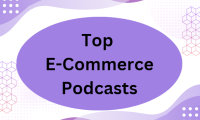Starting an online store can be a rollercoaster ride. It’s exhilarating, a bit scary, and sometimes you might scream.
But before you strap in, you’ve got to choose the right ride—oops, I mean, the right e-commerce platform.
Two popular contenders in the e-commerce showdown are Big Cartel and Shopify. Ready to dive into the ring of Shopify vs Big Cartel? Let’s get started!
Quick Comparison
Big Cartel:
- Designed for artists and makers.
- Free plan available.
- User-friendly interface.
Shopify:
- Best for serious online sellers.
- Extensive customization and scalability.
- Robust sales and marketing tools.
Pricing & Payments
Let’s talk about money. Because, honestly, who doesn’t like talking about money?
Big Cartel:
- Free plan (up to 5 products).
- Paid plans: $9.99/month (up to 50 products) and $19.99/month (up to 500 products).
- No transaction fees, just payment processor fees.
Shopify:
- Basic plan: $39/month.
- Advanced plans: up to $299/month.
- Shopify Starter plan: $5/month.
- 3-day free trial, then $1/month for three months.
- Transaction fees: 0.5%–2% if not using Shopify Payments.
Let’s break it down further.
Big Cartel’s free plan is like a free sample at a grocery store. You get a taste of what they offer, but you’ll probably want more.
The free plan is limited to 5 products, which is perfect for artists or makers who want to test the waters.
The $9.99/month plan increases the limit to 50 products, and for $19.99/month, you can list up to 500 products.
The best part? Big Cartel doesn’t charge transaction fees. You only pay the fees imposed by your payment processor.
Shopify, on the other hand, has a range of plans starting at $39/month. For serious sellers, the advanced plans go up to $299/month.
Shopify also offers a Starter plan for $5/month if you just want to sell on social media or an existing website. They even have a 3-day free trial, and if you’re quick to commit, you can get the first three months for just $1/month.
However, if you don’t use Shopify Payments, expect to pay transaction fees ranging from 0.5% to 2%.
Quick takeaway: Shopify’s plans are more expensive but offer more room to grow.
Site Builder & Maintenance
Building your online store should be as fun as building a Lego castle.
Big Cartel:
- 18 free templates.
- WYSIWYG editor.
- Limited customization.
Shopify:
- 11 free and 110+ paid templates.
- Drag-and-drop builder.
- Extensive customization (CSS and HTML).
Big Cartel’s site builder is straightforward and user-friendly. With 18 free templates, you can create a visually appealing store without spending a dime.
The WYSIWYG (What You See Is What You Get) editor makes it easy to customize your site. You don’t need to be a coding wizard to make changes.
However, customization options are limited. It’s like coloring within the lines of a coloring book.
Shopify, on the other hand, offers a more advanced site-building experience. With 11 free and over 110 paid templates, the possibilities are endless.
The drag-and-drop builder allows for extensive customization. If you know CSS and HTML, you can tweak every detail to your heart’s content.
Shopify’s builder is like having a magic wand, allowing you to create a unique and professional-looking store.
Quick takeaway: Shopify’s builder is like having a magic wand, while Big Cartel is more like a paint-by-numbers kit.
Sales & Product Features
Time to put your products in the spotlight!
Big Cartel:
- Product variants: Up to 150.
- Basic marketing tools: discounts, promo codes.
- Limited POS integration via Stripe.
- Social media integration: Instagram only.
Shopify:
- Product variants: Up to 100.
- Built-in marketing tools: email marketing, abandoned cart recovery.
- Proprietary POS system.
- Multi-channel selling: Facebook, Instagram, TikTok, Etsy, and more.
Big Cartel offers up to 150 product variants, which is generous compared to many e-commerce platforms. You can easily create discounts and promo codes to entice your customers.
However, its POS integration is limited to Stripe, and social media integration is only available for Instagram. This is perfect if you’re a small seller focusing on one channel.
Shopify shines with its built-in marketing tools. You get email marketing, abandoned cart recovery, and more. The POS system is proprietary, offering seamless integration for in-person sales.
You can sell across multiple channels, including Facebook, Instagram, TikTok, and Etsy, from a single dashboard. Shopify’s multi-channel selling capabilities are unmatched, making it a powerhouse for growing businesses.
Quick takeaway: Shopify is the Swiss Army knife of e-commerce tools, while Big Cartel is a trusty pocket knife.
Ease of Use
Simplicity is the name of the game.
Big Cartel:
- Easy to set up and use.
- Helpful prompts and support bubbles.
- Best for small inventories.
Shopify:
- Intuitive but complex due to extensive features.
- Detailed setup guides and tutorials.
- 24/7 support via live chat, phone, and email.
Big Cartel’s ease of use is one of its biggest selling points. Setting up your store is a breeze, with helpful prompts guiding you every step of the way.
The interface is clean and simple, making it perfect for beginners or those with small inventories.
Shopify, while more complex, is still user-friendly. The extensive features might seem overwhelming at first, but the detailed setup guides and tutorials make the process manageable.
Plus, Shopify offers 24/7 support via live chat, phone, and email, so you’re never alone in your e-commerce journey.
Quick takeaway: Big Cartel is like a cozy, small-town diner, while Shopify is a bustling city café.
Expert Score
Shopify:
- Overall score: 4.65/5.
- Best for small businesses and startups.
- High marks for customization and scalability.
Big Cartel:
- Overall score: 3.18/5.
- Best for artists and creators with limited runs.
- High marks for ease of use and affordability.
Experts love Shopify for its extensive customization options and scalability. It’s the go-to choice for small businesses and startups looking to grow.
Big Cartel, on the other hand, scores high for its ease of use and affordability. It’s a favorite among artists and creators who sell limited runs of unique items.
Quick takeaway: Shopify is the valedictorian, while Big Cartel is the cool art kid.
SEO & Blogging
Visibility is key. You want your store to shine like a diamond in a sea of cubic zirconias.
Big Cartel:
- Basic SEO tools.
- No blogging feature.
- Mobile-responsive templates.
Shopify:
- Advanced SEO tools.
- Built-in blogging feature.
- Customizable SEO settings (titles, descriptions, URLs).
Big Cartel provides the basics for SEO. Your store will be mobile-responsive, and it includes valid HTML markup and an automatically generated sitemap to help with search engine indexing.
However, it lacks more advanced SEO features. You can’t customize meta descriptions, and there’s no blogging feature, which can be a significant drawback for content marketing strategies.
Shopify, on the other hand, is an SEO powerhouse. It offers advanced SEO tools, including the ability to customize titles, descriptions, and URLs.
The built-in blogging feature can significantly boost your SEO efforts, allowing you to create content that attracts and engages your target audience.
Quick takeaway: Shopify is your personal SEO guru, while Big Cartel is still figuring out what SEO stands for.
Customer Support
When you need help, who you gonna call?
Big Cartel:
- Email support (Monday–Friday, 8 a.m.–6 p.m. Eastern Time).
- Active social media support.
Shopify:
- 24/7 support via email, live chat, and phone.
- Extensive help center and community forums.
Big Cartel offers email support during business hours, Monday through Friday. The support team is responsive, and you can also reach out via social media for help. However, there’s no live chat or phone support, which might be a dealbreaker for some.
Shopify excels in customer support. They offer 24/7 support via email, live chat, and phone. Additionally, Shopify has an extensive help center filled with articles and tutorials.
The community forums are active and helpful, making it easy to find answers to your questions.
Quick takeaway: Shopify’s got a whole support army, while Big Cartel has a friendly neighborhood helper.
Methodology
Our evaluation was thorough, involving hands-on testing, building demo stores, and leveraging years of e-commerce experience. We compared pricing, ease of use, site builder capabilities, inventory management, and sales tools.
FAQs
1. Does Big Cartel integrate with Shopify?
No, they are separate platforms. You choose one or the other based on your needs.
2. Is it easy to switch from Big Cartel to Shopify?
Yes, but it involves manual data transfer or using a third-party migration tool.
3. What are the top differences between Shopify and Big Cartel?
Shopify offers extensive customization, better sales tools, and robust support. Big Cartel is more affordable and user-friendly for small-scale sellers.
Bottom Line
Choosing between Big Cartel and Shopify depends on your business goals. If you’re an artist or creator selling limited products, Big Cartel’s simplicity and affordability are hard to beat.
But if you’re looking to grow a full-fledged online business, Shopify’s comprehensive tools and scalability make it the superior choice.
So, are you ready to rock your online store? Pick your platform, get creative, and watch your business soar!
And while you’re optimizing your e-commerce platform, consider leveraging AzLytics. It’s like having a strategic data analyst powered by AI who helps you maximize profits. Because who doesn’t want a little extra boost?




